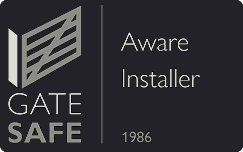Home network security tips
Increasingly we find more and more homeowners favouring devices which run off their home networks. This no longer just includes laptops, mobile phones and tablets – CCTV and intruder alarms as well as smart TVs and some household appliances have the capability to integrate within a home network.
Security tips for your home network
The security of such networks has recently been in the spotlight. We wanted to reassure customers that, when it comes to our installation of security systems on a home network, we follow best practice security guidance. We also wanted to share some simple but valuable tips to help homeowners further protect the security of their home networks.
- Choose complex passwords – wherever possible select passwords for device logins which have a minimum of 8 digits and include a mixture of upper and lower case letters and numbers. Avoid using dates of birth and obvious numbers instead of letters (for example 3 for Es and 5 for Ss). Give each device a separate password and change passwords regularly.
- Storing passwords – avoid having a list of passwords on your computer, phone or tablet. If you really need to write down passwords to remember them, do so on a bit of paper and store this in a safe in your home. Better still, use password manager software to create and securely manage complex passwords.
- Anti-virus software – ensure your anti-virus software is up to date for your home PCs, and that it is a reputable one with a proven track-record and good reviews. When downloading any software, ensure it is from a reputable source.
- Be more wary with emails – ensure all family members are wary of any emails requesting the re-keying in of login credentials, as these may be phishing. If you give your login details to a third party you can be liable for any adverse consequences and fraudulent activity which happens on your account.
- Public WIFI – when out and about, avoid using public, unsecured, WIFI networks to connect to sites which have your personal details such as online banking, security apps etc.
- Regularly back-up your data – adopt a regime of regularly backing up your data to minimise any disruption should a computer/device fail. If you are just relying on a Cloud-based back up consider storing an alternative on an external hard-drive device or USB stick which is stored in a safe in the home.
- Two-factor authentication – for some devices such as access control systems, consider having a two-step login, such as a security fob and access code, or a security fob and fingerprint swipe. This gives you added security.
- Fingerprint authentication – fingerprints are becoming a popular alternative to passwords and are a feature of many computer and mobile phone security. If you are keen to use this route, ensure only your fingerprint is designated in the system for your key sites. Be careful of adding other family members, especially children.
- Suppliers and contractors – if you are having suppliers and contractors around your home be careful about giving them access to your home network WIFI. Also, if you’re going out, ensure all computers and devices auto-lock after a few moments of non-use.
- Check your insurance cover – if loss of data could have serious consequences for you (for example if you run a business from home), explore if your insurance policy covers this and increase cover if necessary. Also, check that devices sitting on your home network are covered by your policy and comply with any security conditions your insurer stipulates.
Can we help?
And if you are looking to integrate CCTV, access, intruder and fire detection systems in your home, please talk to one of the team about the most secure ways of doing this. Call 01483 791500 or email sales@absolutesecurity.co.uk










